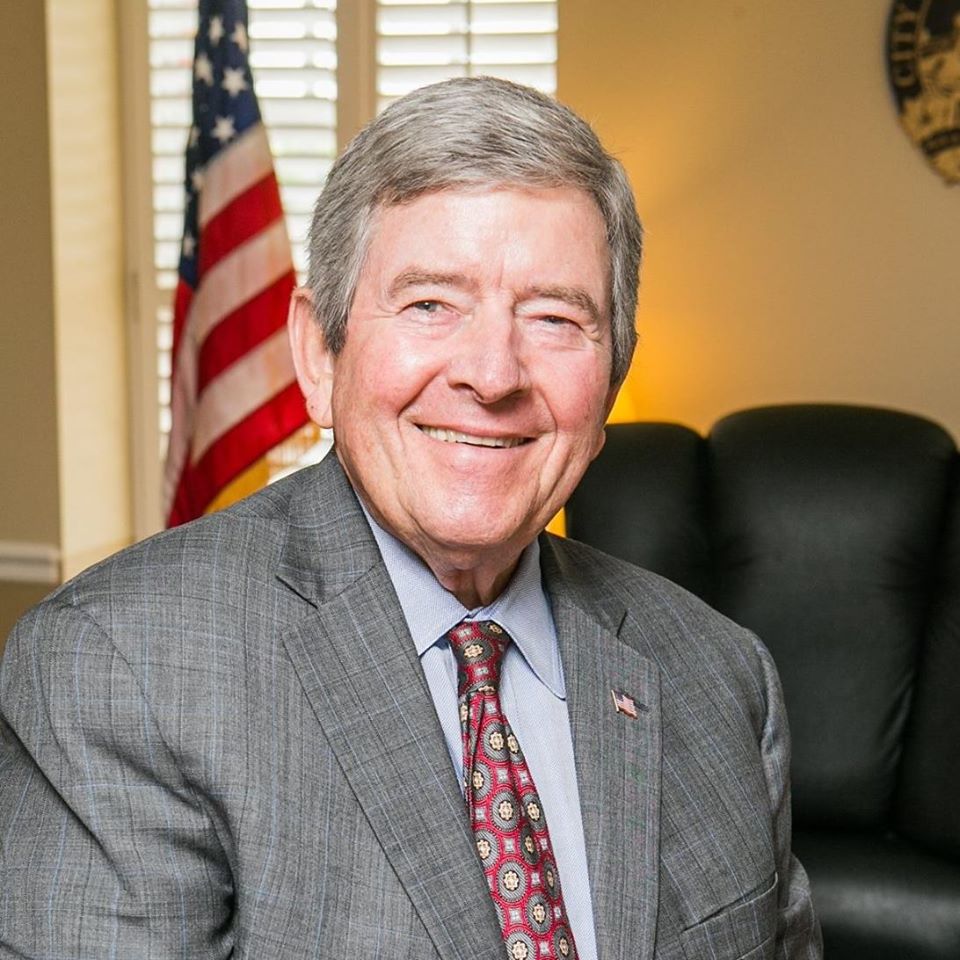By Mayor Gary Fuller
Special to the
Opelika Observer
5G is the next generation of mobile broadband that will eventually replace or augment the current 4G LTE connection. With 5G, the customer will possibly see exponentially faster download and upload speeds. Carriers started rolling out fixed 5G to selected cities about two years ago and mobile 5G has already started making an appearance in cities around the United States this year with more comprehensive roll-outs expected in 2020.
With the roll-out of 5G Internet service, carriers will be deploying “small cells,” a type of wireless technology for broadband infrastructure. Generally, small cell refers to both the small coverage area of the wireless signal, and the smaller size of the infrastructure. Small-cell installations generally cover much smaller geographical areas — measured in hundreds of feet — than traditional macrocell towers (cell towers) that can cover miles in each direction. The small cell antennas are much smaller than those deployed at macrocell sites and are often attached to buildings, rooftops and structures in the public rights-of-way (ROW), including utility poles.
Pole or ground-mounted equipment accompanying the antennas may be needed. Clusters of small cells can be visually unappealing and detract from the aesthetic of the community. Deployment and installation of small cells can potentially interfere with existing technology such as wireless traffic signals and other municipal technology in close proximity.
In Alabama, most wireless infrastructure siting is governed by local governments. Cities and counties assess applications for permits to build new or other existing wireless facilities for a variety of purposes, including public safety, overall management of public property and rights-of-way, environmental issues, land use and community aesthetics. Small-cell deployment is already happening in Alabama through locally negotiated agreements. These negotiations are conducted in good faith to balance the demand for new technology while protecting public assets and aesthetic qualities unique to each community.
Local governments have long advocated for universal access to high-speed broadband services, as these services are critical for the delivery of education, economic development, employment and a variety of essential services necessary for success and progress in the 21st century. Local governments have been leaders in developing innovative solutions for ensuring reliable high-speed broadband wireline and wireless services are widely available in their communities through the management of public streets and other public assets in a manner that balances competing interests and needs of various constituents.
In Opelika, we welcome 5G technology. It is a crucial foundation for smart city initiatives. In 2019, the city of Opelika enacted ordinances to manage and streamline small cell deployments. Opelika’s small cell ordinances include provisions to protect safety and aesthetics.
In October 2019, the Opelika City Council approved our first small cell deployment. Our new ordinance complies with the Federal Communications Commission’s Small Cell order that was issued last September. The order is a blatant effort by the FCC to strengthen the hand of carriers, such as AT&T, in their negotiations with local governments.
In spite of the FCC order, during the 2019 Legislative Session, Sen. Arthur Orr introduced a bill aimed at establishing even more rules for small-cell deployments and amending existing statutes to additionally limit local governments’ ability to regulate such deployments.
This bill was widely criticized by local governments across the state. This bill failed in the 2019 legislative session, but AT&T is actively lobbying the Legislature in hopes in getting the small cell bill passed in the next session. Senator Orr has said he will take up the issue in the 2020 legislative session.
Senator Orr’s bill is an attempt to override local government control over the installation of wireless equipment, like small cells, in neighborhoods across Alabama. The proposed legislation will significantly impede local governments’ ability to serve as trustees of public property, safety and well-being. This legislation will transfer significant local resources to private companies, such as AT&T, without securing any guarantee of public benefit in return. The bill will deprive Alabama cities of their authority to regulate public rights-of-way and will leave municipalities minimal ability to control the aesthetics of their rights-of-way.
The Opelika City Council and I are vigorously opposed to Senator Orr’s bill. This bill will preempt local jurisdictions from enacting sensible laws to protect their right-of-way and other public property. And remember, there are already federal rules and regulations that we must adhere to.
AT&T and other large carriers are pursuing small cell wireless legislation because lobbyists and special interests know it’s easier to influence a few state lawmakers than hundreds of mayors and city councils across Alabama. This is a move by powerful corporations and a few state legislators to expand the power of the state over local control and to strip powers from cities and counties. The ability of local governments to manage their poles and rights-of-way is critical. Therefore, we urge state policy makers to resist the temptation to pass unnecessary statewide legislation that will override the ability for communities to make decisions locally. Alabama’s local communities are in the best position to make policy decisions for their local citizens regarding the use of public rights-of-way, and these agreements are already happening around the state.

